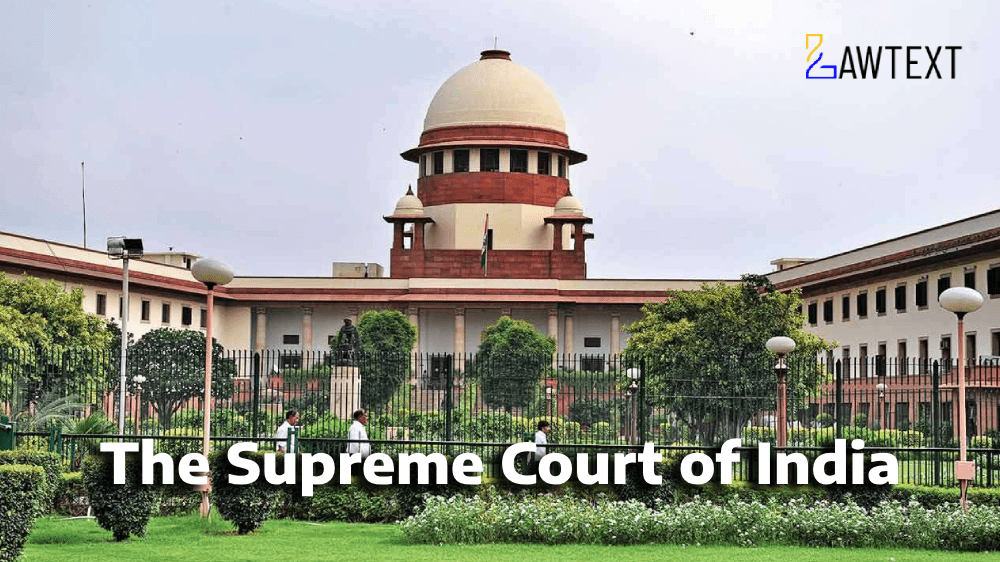State of Haryana's Plea for Adverse Possession Denied: High Court's Judgment Upheld. State cannot claim adverse possession over private land in a welfare State; Plaintiffs' Ownership Established.

CASE NOTE & SUMMARY
The Supreme Court dismissed the appeal filed by the State of Haryana and the Public Works Department (PWD), challenging the High Court's decision which restored the decree passed by the Trial Court in favor of the plaintiffs (Shri Amin Lal and Shri Ashok Kumar) for possession of land. The High Court had ruled that the defendants' (State and PWD) possession was permissive, not adverse, and that by claiming adverse possession, the defendants had implicitly admitted the plaintiffs' title. The Court also emphasized that the State cannot claim ownership through adverse possession against its citizens, aligning with constitutional rights and judicial precedent.
-
Issue of Land Dispute (Para 3.1)
- The dispute concerns 18 Biswas Pukhta of land located on both sides of National Highway No. 10 in Bahadurgarh, Haryana, recorded under Khasra Nos. 2348 and 2458.
-
Plaintiffs' Claim (Para 3.2)
- The plaintiffs filed a suit in 1981 claiming ownership based on revenue records, alleging that the defendants had occupied the land unlawfully for three and a half years before the suit.
-
Defendants' Claim (Para 3.3)
- The defendants (State of Haryana and PWD) contested, claiming adverse possession, asserting continuous possession since 1879-80.
-
Trial Court Judgment (Para 3.6)
- The Trial Court decreed the suit in favor of the plaintiffs, ruling that the defendants failed to prove adverse possession, and their possession was not hostile but permissive.
-
First Appellate Court (Para 3.7)
- The First Appellate Court overturned the Trial Court's judgment, ruling in favor of the defendants, stating the plaintiffs failed to prove ownership, and the defendants had possessed the land continuously since 1879-80.
-
High Court's Ruling (Para 3.8)
- The High Court reversed the Appellate Court's judgment, agreeing with the plaintiffs that the defendants' possession was permissive and that by invoking adverse possession, the defendants impliedly admitted the plaintiffs' title.
-
Supreme Court's Review (Para 7-16)
- The Supreme Court upheld the High Court's decision, stating that:
- The appellants (State/PWD) did not specifically deny the plaintiffs' title.
- The defendants' plea of adverse possession was flawed, as the State cannot claim title through adverse possession against its own citizens.
- The plaintiffs had established ownership through revenue records, registered sale deeds, and mutation documents.
Legal Acts and Sections Discussed:
-
Section 35, Indian Evidence Act, 1872:
- Revenue records are admissible evidence and carry a presumption of correctness, supporting the plaintiffs’ claim of ownership.
-
Order 8 Rule 5, Code of Civil Procedure, 1908:
- Defendants' failure to deny plaintiffs' title in their written statement led to the implied admission of the plaintiffs' ownership.
-
Article 65, Limitation Act, 1963:
- The Court rejected the plea that the suit was barred by limitation, noting that the plaintiffs had established their title.
-
Section 110, Indian Evidence Act, 1872:
- The plea of adverse possession raised by the appellants failed to establish ownership since the possession was not continuous or hostile.
Ratio Decidendi (Legal Principle):
- Adverse Possession by the State: The State cannot claim adverse possession against its own citizens, as it undermines constitutional rights and public trust in government. The State must follow lawful procedures for acquisition of property.
- Admission of Title: By pleading adverse possession, the defendants implicitly admitted the plaintiffs' title, as per Order 8 Rule 5 of the CPC.
- Burden of Proof: The burden of proof in a suit for possession based on title lies with the plaintiff initially, but if the defendant pleads adverse possession, the burden shifts to the defendant to prove such possession.
Conclusion:
The Supreme Court upheld the High Court's ruling, reinforcing the principle that the State cannot claim adverse possession over private property, particularly when such claims are not supported by hostile and continuous possession for the requisite period. The plaintiffs successfully established their title to the land, leading to the dismissal of the appeal.
ISSUE OF CONSIDERATION
THE STATE OF HARYANA & ANR. VERSUS AMIN LAL (SINCE DECEASED) THROUGH HIS LRS & ORS.
Citation: 2024 LawText (SC) (11) 193
Case Number: CIVIL APPEAL NO. OF 2024 (Arising out of SLP (C) No.25213 of 2024)
Date of Decision: 2024-11-19
Case Title: THE STATE OF HARYANA & ANR. VERSUS AMIN LAL (SINCE DECEASED) THROUGH HIS LRS & ORS.
Before Judge: (VIKRAM NATH J. , PRASANNA B.VARALE J. )
Appellant: THE STATE OF HARYANA & ANR.
Respondent: AMIN LAL (SINCE DECEASED) THROUGH HIS LRS & ORS.

